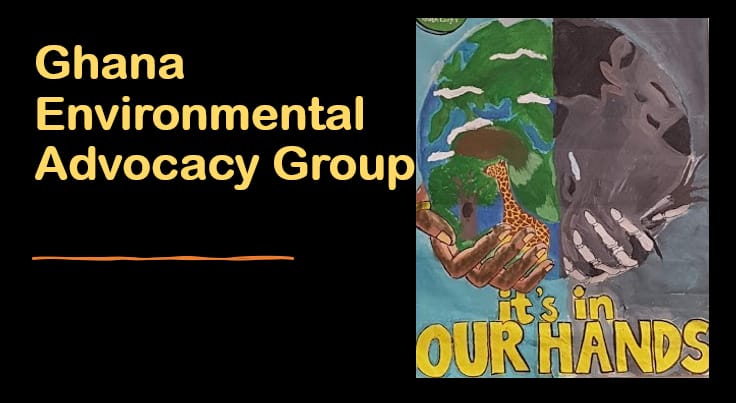1. Fight Against Illegal Mining
Illegal mining, or galamsey, has wreaked havoc on Ghana’s environment, particularly its water bodies and forests. GEAG tackles this issue through advocacy, community education, and collaboration with law enforcement and policymakers. The group organizes awareness campaigns to educate local communities on the long-term consequences of illegal mining. They also partner with authorities to support the enforcement of mining regulations and promote sustainable livelihood alternatives, such as eco-tourism and farming, to reduce dependence on mining.
2. Climate Change Mitigation and Adaptation
GEAG is committed to addressing climate change through reforestation programs, renewable energy advocacy, and climate education. They work with local governments and organizations to implement community-based tree-planting initiatives, reducing carbon footprints. GEAG plans to introduce climate-resilient agricultural practices, empowering farmers to adapt to changing weather patterns. By organizing workshops and public forums, they ensure communities understand climate change and how to mitigate its effects.
3. Waste Management and Recycling
GEAG is tackling Ghana’s growing waste problem by promoting sustainable waste management practices. They run recycling campaigns, set up collection centers in communities, and encourage the use of biodegradable materials. The group collaborates with schools and businesses to teach waste segregation and reduction techniques. Their future plans include supporting waste-to-energy initiatives, where non-recyclable waste is converted into energy to benefit local communities.
4. Water Conservation
GEAG is dedicated to protecting Ghana’s water bodies from pollution and overuse. They work to clean polluted rivers and streams, while advocating for sustainable water use among farmers and industries. GEAG organizes cleanup events along rivers, educates communities on the dangers of water pollution, and lobbies for stronger regulations to protect water sources. Their long-term goal is to establish a network of protected water bodies and advocate for innovative water-saving technologies.
5. Deforestation Prevention and Reforestation
Deforestation threatens biodiversity and accelerates climate change. GEAG actively combats illegal logging by working with forest communities to monitor and report activities that endanger forests. They conduct reforestation drives, planting indigenous tree species to restore degraded landscapes. GEAG also engages traditional leaders and community stakeholders to create awareness about the importance of forest preservation and sustainable land use.
6. Environmental Education and Awareness
Education is a cornerstone of GEAG’s approach. They organize school-based programs, community workshops, and nationwide campaigns to foster environmental consciousness. The group creates resources, including brochures, videos, and social media content, to make environmental issues accessible to all. In the future, GEAG plans to develop an environmental curriculum for schools, ensuring the next generation grows up with a strong commitment to sustainability.
7. Biodiversity Conservation
GEAG works to protect Ghana’s rich biodiversity, focusing on endangered species and fragile ecosystems. They partner with wildlife organizations to conduct research, implement conservation projects, and advocate for stricter anti-poaching laws. GEAG also collaborates with local communities to promote sustainable wildlife practices, such as eco-tourism. Plans include creating wildlife sanctuaries and corridors to preserve habitats.
8. Advocacy for Green Policies
GEAG engages with government institutions to influence the creation and enforcement of environmental policies. They organize stakeholder forums and roundtable discussions to push for laws that prioritize sustainability. The group also participates in international climate negotiations, representing Ghana’s environmental interests. GEAG plans to launch a policy-monitoring initiative to track the implementation of environmental laws.
9. Sustainable Agriculture
GEAG promotes eco-friendly farming techniques, such as organic farming and agroforestry, to protect soil health and boost food security. They work with farmers to provide training and resources for sustainable practices. GEAG also advocates for reduced pesticide use and encourages the adoption of crop rotation to maintain soil fertility. Future projects include creating model eco-farms to showcase best practices in sustainable agriculture.
10. Renewable Energy and Green Economy Promotion
GEAG recognizes the importance of transitioning to clean energy. They advocate for the adoption of solar, wind, and other renewable energy sources. By working with communities to install solar panels and energy-efficient systems, they aim to reduce reliance on fossil fuels. GEAG also promotes green jobs by supporting enterprises that focus on sustainable products and services, contributing to both economic growth and environmental protection.

